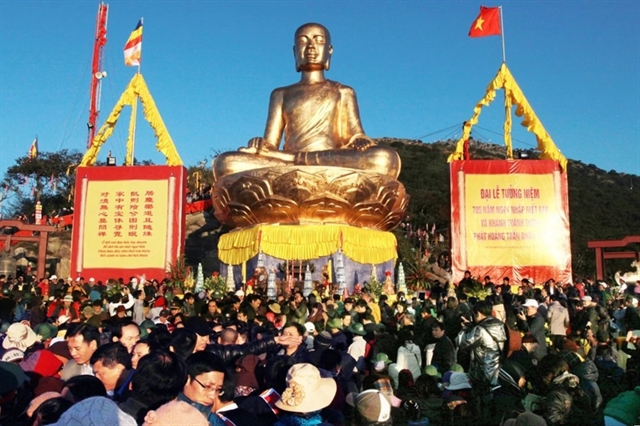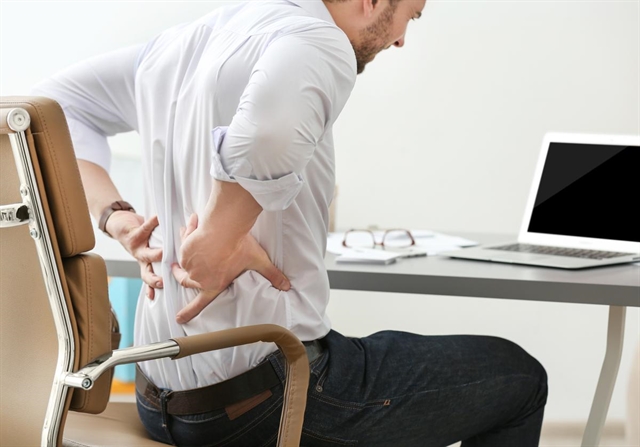 Life & Style
Life & Style


|
| Dr. Andres Sosa. Photo courtesy of Family Medical Practice |
by Dr. Andres Sosa*
Working in offices often entails being in a sitting position for long periods of time. This may cause lower back pain, a source of great discomfort and inconvenience. As an orthopaedic surgeon treating expats at Family Medical Practice since 2018, I would like to share some tips to avoid or deal with office-related back pain.
Low back pain (LBP) is the pain located in your lumbar and buttocks region. Over 80 per cent of us will have at least one episode of LBP during our lives. It is the most common reason for people to visit orthopaedic doctors.
It’s important to point out that almost none of the lower back pain is actually related to a specific pathology like a fracture, tumour or infection.
LBP is the leading cause of disability worldwide. In 2020, LBP impacted 619 million individuals, representing a huge economic burden. In the US alone, more than US$50 million is spent annually and approximately 150 million working days are missed due to LBP.
Having LBP not only affects your mood, but also your productivity, performance, and lifestyle in the long term. You may notice yourself doing fewer activities, avoiding travelling, and giving excuses to skip sports. Becoming sedentary facilitates weight gain and may worsen other conditions as well.

|
| Low back pain (LBP) is the pain located in your lumbar and buttocks region. Photo shutterstock.com |
Tip # 1. What should you do if you suffer an episode of LBP?
First, run through a quick checklist for red flags which may be related to more serious pathology. Have you had sudden changes in your bladder or bowel function? Do you have a fever? Have you had recent, unexplained weight loss? Have you had a recent fall or trauma? Is the pain “moving down” to your legs? Do you feel any tingling or numbness in your legs?
You should see your doctor ASAP if you answered yes to any of these questions.
Tip # 2. Do you need an x-ray or further image studies like an MRI or a CT scan?
X-rays are usually enough to check your spine alignment and to identify if there is any disc compression. If your doctor considers it necessary, an MRI or a CT scan could be requested. Image studies can offer your doctor a wider picture of the situation and also how to prevent more episodes.
Tip # 3. How to prevent LBP?
Repetitive incorrect postures and being overweight are the most common causes.
Movement: To stretch yourself is good but not enough. So, take a break every 60-90 min for a short walk.
Meals: If you are overweight, focus on your nutrition. An increased abdominal circumference demands more loads on your lumbar spine.
Tip # 4. Does physical therapy help?
Definitely yes. I often prescribe physiotherapy to reeducate my patients to achieve a better posture and core restrengthening in parallel with direct work on their lower back.
Tip # 5. What if pain medication and physio are not enough?
There are more options for pain management. Sometimes an IV dripping could be enough, but other kinds of procedures like steroid injections could be necessary.
To recap: most of us will suffer from LBP during our lives. Usually, LBP is non-specific but can affect our lives in the long term. If you have any red flags, you should consult your doctor ASAP. Family Medical Practice
Dr. Andres Sosa is our Orthopedic Surgeon specializing in sports medicine and trauma. After his residency in Orthopaedics, he took a Master's in Upper Limb Surgery at the University of Bologna (Italy). Furthermore, he joined Sports Medicine at Thomas Jefferson University (PA, USA) and obtained a second Master’s in Shoulder Surgery from the University of Andalucía (Spain). Once in SEA, he continued with his surgical training at the Arthrex ArthroLab in Singapore, especially for meniscus and ligament reconstruction.
Dr. Sosa joined FMP in 2018 and he is responsible for all orthopaedic and trauma cases. He also has a Master's in Sports Nutrition from Mayor University (Chile) and is fluent in English, Italian, and Spanish.
Visit Family Medical Practice Hanoi 24/7 at 298I P. Kim Mã, Kim Mã, Ba Đình.
To book an appointment, please call us at (024).3843.0784 or via Whatsapp, Viber or Zalo on +84.944.43.1919 or email hanoi@vietnammedicalpractice.com.
FMP’s downtown location in Hồ Chí Minh is in Diamond Plaza, 34 Đ. Lê Duẩn, Bến Nghé, district 1, Thành phố and 95 Đ. Thảo Điền, district 2. Tel. (028) 3822 7848 or email hcmc@vietnammedicalpractice.com.




